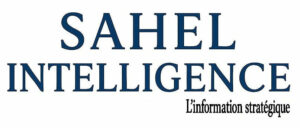This weekend, the heads of state and government of the African Union (AU) will gather in Addis Ababa for their annual summit, a critical event addressing the continent’s major challenges, including conflicts in the Democratic Republic of Congo (DRC) and Sudan, as well as the overall reduction of humanitarian aid decided by the United States.
The 38th Ordinary Session of the AU Assembly, the supreme decision-making body of the pan-African organization, will take place this Saturday and Sunday at the Ethiopian institution’s headquarters. The meeting is held in a particularly tense context, with major geopolitical and humanitarian issues weighing on the stability of several African regions.
The escalation of the conflict in eastern DRC is one of the main concerns of African leaders. Since January 27, 2023, the March 23 Movement (M23) rebel group has taken control of the capital of North Kivu province, a mineral-rich region. This offensive, following violent clashes with the Congolese army, has resulted in nearly 3,000 deaths and about 2,900 injuries, according to the UN.
The M23, primarily composed of Tutsis who survived the 1994 Rwandan genocide, has exacerbated tensions with neighboring Rwanda. The Congolese government accuses Kigali of supporting the rebel group, an allegation confirmed by the UN. In response, both Rwanda and the M23 have criticized the cooperation between the Congolese army and the Democratic Forces for the Liberation of Rwanda (FDLR), a paramilitary group made up of individuals responsible for the genocide and other Rwandan exiles. The UN has also corroborated this cooperation.
The intensification of this conflict risks leading to a regional war, with neighboring countries, including South Africa, already militarily involved on Congolese soil. Since the two major wars between 1996 and 2003, which involved about ten African states, eastern Congo has become a geopolitical powder keg, threatening to reignite ethnic and political tensions across the Great Lakes region.
Burundi, in particular, has deployed several thousand soldiers to South Kivu, supporting Congolese forces against the M23. According to security sources, about 2,500 Burundian militiamen are fighting alongside the Congolese army. However, these troops are seen as ineffective on the ground, despite their superiority over the Congolese Armed Forces (FARDC). This military involvement by Burundi has further deepened the diplomatic rift with Rwanda, with both countries accusing each other of fueling communal tensions in a region still marked by the memories of the Rwandan genocide.
Another dark cloud hanging over the AU summit is the civil war ravaging Sudan since April 2023. This internal conflict has already claimed tens of thousands of lives and forced more than 11 million people to flee their homes, causing the worst displacement crisis in the world. Sudan, plunged into humanitarian chaos, represents another point of friction shaking the African continent, with devastating consequences not only for the country but also for neighboring states.
The AU will also discuss the reduction of humanitarian aid, particularly after recent decisions by the United States, which have significantly reduced their contributions to international aid. This reduction threatens many vital initiatives across the continent, already weakened by conflicts, climate change, and economic crises.
Thus, the AU summit will take place under the heavy pressure of these multiple crises, with potentially dramatic consequences for peace and stability across the region. While all heads of state from AU member countries are expected, it remains to be seen whether Presidents Paul Kagame of Rwanda and Félix Tshisekedi of the DRC will meet in person to discuss the explosive situation in the Great Lakes.
The International Crisis Group (ICG) think tank has warned that the risk of this conflict turning into a regional confrontation, recalling the horrors of the 1990s, is high. The international community, through this summit, hopes for strong decision-making and enhanced cooperation to defuse these tensions and provide a collective response to the crises disfiguring the continent.

